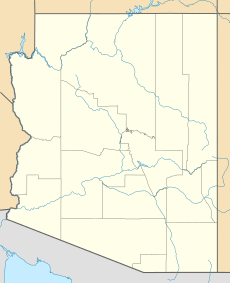Swilling Butte facts for kids
Quick facts for kids Swilling Butte |
|
|---|---|
 |
|
| Highest point | |
| Elevation | 6,785 ft (2,068 m) |
| Prominence | 485 ft (148 m) |
| Isolation | 0.63 mi (1.01 km) |
| Parent peak | Colter Butte |
| Naming | |
| Etymology | John Swilling |
| Geography | |
| Location | Grand Canyon National Park Coconino County, Arizona, US |
| Parent range | Kaibab Plateau (Walhalla Plateau) Colorado Plateau |
| Topo map | USGS Walhalla Plateau |
| Geology | |
| Age of rock | Permian-Pennsylvanian down to Cambrian |
| Mountain type | sedimentary rock: sandstone, siltstone, mudstone, limestone, shale |
| Type of rock | Supai Group-(debris remainder, prominence), Supai Group, Redwall Limestone, Tonto Group-(3 units) 2_Muav Limestone, 1_Bright Angel Shale |
Swilling Butte is a cool mountain peak in the amazing Grand Canyon. It stands tall at about 6,785 feet (2,068 meters) above sea level. You can find it in the eastern part of the Grand Canyon, in Coconino County, Arizona.
Contents
What is Swilling Butte?
Swilling Butte is a special kind of mountain called a "butte." A butte is a tall, flat-topped hill with steep sides. It's like a natural tower made of rock. Swilling Butte is part of a group of peaks. These include Colter Butte to its west, and Hutton and Duppa Buttes to its east.
Where is Swilling Butte Located?
This butte is found north of a stream called Kwagunt Creek. This creek flows into the mighty Colorado River. Swilling Butte is about 3 miles northeast of a spot called Atoko Point. It's also about 4 miles west of the Grand Canyon's East Rim. The Colorado River flows nearby, just west of the East Rim.
How Swilling Butte Was Formed
Swilling Butte is mostly made of bright-red rock called Redwall Limestone. This rock is very strong and forms tall, steep cliffs. Because it's so strong, it also creates flat tops, like the one on Swilling Butte.
Layers of Rock
Below the Redwall Limestone, there are older rock layers. These include the Cambrian Tonto Group. This group has two main parts: the Muav Limestone and the Bright Angel Shale. The Bright Angel Shale forms gentler slopes, while the Muav Limestone is harder.
On top of the Redwall Limestone, you can find pieces of another rock group called the Supai Group. This group has four different layers. Some of these layers are hard and form cliffs, while others are softer and create slopes. Over millions of years, wind and water have carved these different rock layers into the amazing shape we see today as Swilling Butte.
 | Emma Amos |
 | Edward Mitchell Bannister |
 | Larry D. Alexander |
 | Ernie Barnes |



